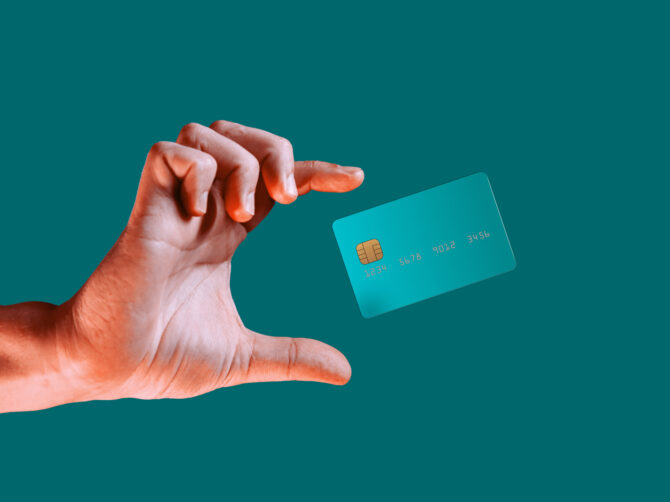Why Pepper?
By providing a universal interface, our Pepper software makes it easy to connect POS terminals to your cash register software.
Why Pepper?
By providing a universal interface, our Pepper software makes it easy to connect POS terminals to your cash register software.
POS terminal assistant
Find out whether your terminal is supported by our solutions.
Supported POS software
Find out whether Pepper has already been integrated into your POS system.
Order a Pepper license
Ready to purchase your Pepper license?
Why Matchbox?
Matchbox automates your payment reconciliation, reduces expenditures – and turns the flood of your payment data into informative diagrams.
Free Matchbox trial
Give Matchbox a try? We would love to give you a short personal introduction and then activate your free trial account.
Supported terminal types
Find out whether your terminal is supported by our solutions.
Check now
Supported POS software
Find out whether Pepper has already been integrated into your POS system.
Check now
The driving force worth knowing
As EFT experts, we not only report on current projects here. We also like to share our knowledge about the world of cashless payments.
8 December 2021

More and more banks in Switzerland are now gradually replacing their Maestro and V PAY cards with the new Mastercard and Visa debit cards. But what does this mean for merchants and end customers? Here you will find everything you need to know about the special features of the new debit cards and the differences compared to bank cards or credit cards, as well as what fees merchants in Switzerland can expect to incur for transactions using the new debit card.
A debit card is a bank card used as a cashless payment method. When making a payment in a shop or restaurant or on the internet, the sum of money is debited directly from the corresponding bank account, unlike a credit card, and transferred to the payee’s account.
Using a Mastercard or Visa debit card, cardholders can, for example:
Modern security features also offer customers protection against risks, such as their debit card being used by third parties. With its “Zero Liability” pledge, Visa sets the liability limit for cardholders for unauthorised payments at CHF 0.00.
Find out how the fees for merchants differ here.
Many large banks in Switzerland, such as Credit Suisse, PostFinance or UBS, began to offer their customers the new Debit Mastercard or Visa Debit in 2021. Some banks will only accept the Maestro and V PAY cards issued to date until the end of 2021. The newly issued Mastercard and Visa debit cards will therefore gradually replace the currently used Maestro and V PAY cards.
| Debit Mastercard | Visa Debit | |
| Leistungen |
| |
| Gebühren | Keine Jahresgebühr | |
| Kartenzahlung weltweit kostenlos |
| |
| Sicherheit | 2-Faktor-Authentifizierung im Online-Kauf | |
| Moderne Sicherheitsfeatures verhindern Fremdnutzung der eigenen Karte |
| |
Merchants pay a commission of around 0.5% of the sale for payments made using the Mastercard debit card. By contrast, between 0.23 and 0.30% of the respective payment amount is charged for each transaction using a Maestro card.
In brick-and-mortar retail, merchants clearly feel the effect of the higher fees associated with the new debit card compared to the Maestro card, particularly for transactions involving high amounts. For example, the commission for the Debit Mastercard on a sale totalling CHF 2’600 is about 50 times higher than that of the Maestro card.
With the Visa debit card, the transaction fee for merchants is around 1%, which is also significantly higher than the fees for the V PAY/Maestro card.
For transactions paid for using credit cards (from Mastercard or Visa), the fees for merchants are between 1 and 3% of the sale. Merchants tend to pay lower fees for purchases in online shops paid for using the new Mastercard or Visa debit card, as Maestro and V Pay cards could not be used to pay for online purchases.
The roll-out of the new Mastercard and Visa debit cards poses a number of different challenges for merchants, in addition to the new fee structures.
In the case of older terminal models, problems may arise when the transaction is being processed if the new cards are not recognised correctly.
However, upgrading to a newer terminal can quickly become expensive, as integration can involve considerable costs.
To minimise the costs associated with integrating new card terminals, there is the established software solution Pepper from treibauf, which, as a universal cash register interface, simplifies the process of connecting new terminals to the respective cash register system and reduces the time needed to just a few minutes.
The new fee structures for Mastercard and Visa debit cards make it even more difficult for merchants to keep track of the different commissions and fees for the different EFT options.
What is needed here is a software that helps controlling and accounting departments to keep track of the payment methods used by customers and the fees that are incurred in the process.
For example, the Matchbox reconciliation software offered by treibauf does not just automate reconciliation of customer payments with the corresponding amounts paid by the payment processors into the accounts; by processing all important payment data into a clear reconciliation dashboard, users can also benefit from useful information and a greater degree of transparency – providing a key cornerstone for precise controlling and improved decision-making.
treibauf’s software solutions not only help merchants to integrate new terminals for processing the new debit cards, they also allow them to keep track of the EFT fees they incur.

23 April 2024 – There is no excerpt because this is a protected post. Continue reading

21 March 2024 – What do you actually do with your expired debit cards, credit cards and railcards? They’re simply too good to throw away. If you want to quickly make something practical, surprise your colleagues or bring a little light relief to your next customer meeting, we’ve got three upcycling ideas for ... Continue reading

7 December 2023 – «For us Pepper works like a universal adapter, which makes it vastly easier to connect different terminal types», says Rüdiger Boesen, Product Management TCPOS at Zucchetti, summarising his understanding of the software. A general contract was consequently concluded for the DACH region back at the start of the 2000s. Continue reading